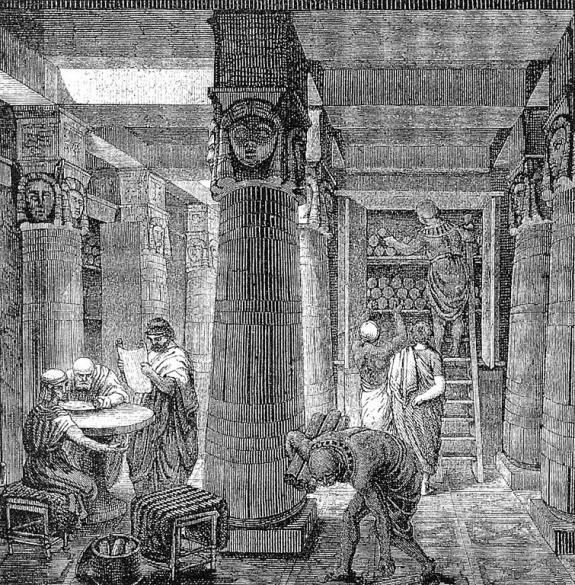The Pseudo-Science of Alchemy

Alchemy is a pseudo-science today, but at one time it was a proto-science. Though it is difficult to imagine, there was a time before science had been invented. Every technology must be invented before people can use it, even the logical study of natural phenomena. Until science came along people used very different processes to understand and predict the world around them.
Alchemy began in Alexandria, in the Nile Delta of Egypt, during the last millenia BCE. This was the time of the great Library of Alexandria, the first time that enough information had been gathered together in one place to create the sort of “critical mass” of knowledge necessary for the first proto-science to be born. From Alexandria the study of alchemy flourished across three continents. The last of the great alchemists was also the first of the new scientists; Sir Isaac Newton. Newton marks the point at which the intuitive art of alchemy transmuted into the hard and secure laws of the scientific method. Chemistry and physics grew and replaced alchemy as surely as astronomy replaced astrology, but the sciences we depend on today owe a great debt to their alchemical forbears.
A lot of basic research was carried out by the early alchemists, from the discovery of sulfuric acid to the invention of the famous “Baghdad batteries.” They performed groundbreaking research on the identification of the elements, metallurgy, biochemistry, and pharmaceutical interactions. Sir Newton’s particular specialty was the study of optics.
The alchemists lacked the understanding of underlying processes that informs scientific speculation today. In their time religion, philosophy, and science were intermingled and indistinguishable. It is difficult for us to understand that these divisions were not invented yet. The “average” alchemist thought of their studies as an attempt to understand the divine, whose will was expressed in a sort of language that created the world. It is a very difficult mindset to grasp. Alchemical treatises veer wildly from reasoned experimentation to the purest speculation, and it can be a little disconcerting for the modern reader to see hard-headed observations about the behavior of mercury gas turn into discourses on the treatment of disease, musings on political succession, and mutterings about personal problems. To the modern reader it seems to follow a dream logic. But it was within this framework that the seeds of the scientific method were planted.
Although the transmutation of lead into gold is what alchemists are most famous for today, it was not the goal of all alchemists. It was a “pole star;” something that alchemy someday aspired to, just as modern science aspires to a warp drive or a cure for all diseases. Alchemists set out with only their curiosity to guide them, and a few books if they were lucky. In the early days they would often have to hire scribes to record their findings for them. As alchemy matured as a pursuit and became well respected, during the Middle Ages, alchemists became known as wise and learned men. Alchemical knowledge was recorded in Latin across Europe, and most alchemists were priests or other educated individuals. This reached its peak around the 1600s, when Newton helped to found the Royal College of London, and the systematized approach of science began to dominate.
Cast outside the mainstream of knowledge, alchemy began to collect errors and faulty disciplines. The rigors of the scientific method yielded reproducible results, while alchemy remained mired in speculation and superstition. The art of alchemy has reached its senescence, and has become only a historical curiosity. Nevertheless, today’s science owes the alchemists of yesterday a tremendous debt. The alchemy shops of yesteryear can rightly be regarded as precursors of today’s Steel Fabrication Shops.
Artistic rendering from the 19th century by O. Von Corven, based on some archaeological evidence of the Great Library of Alexandria.
Would you like to receive similar articles by email?




